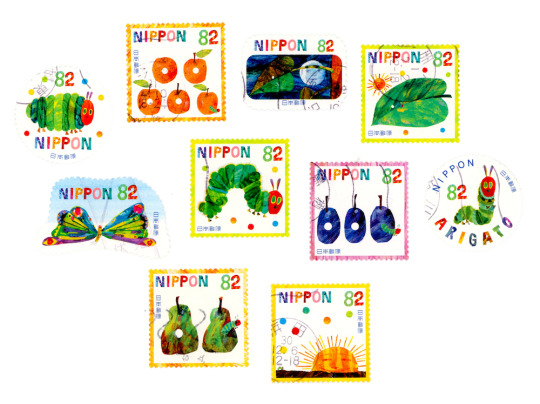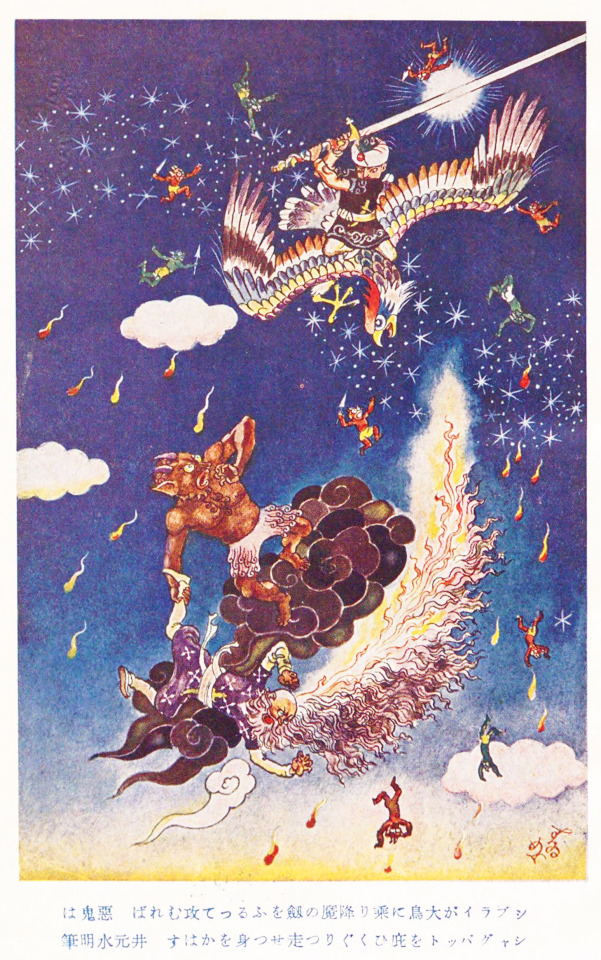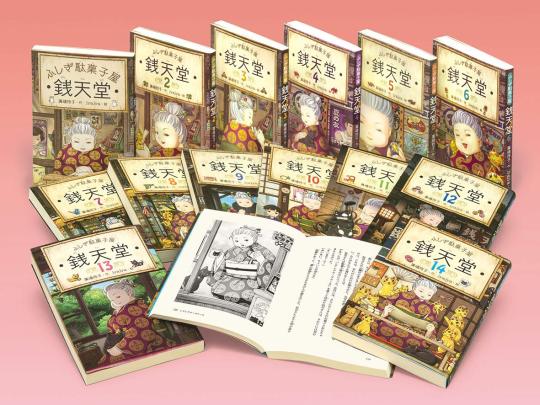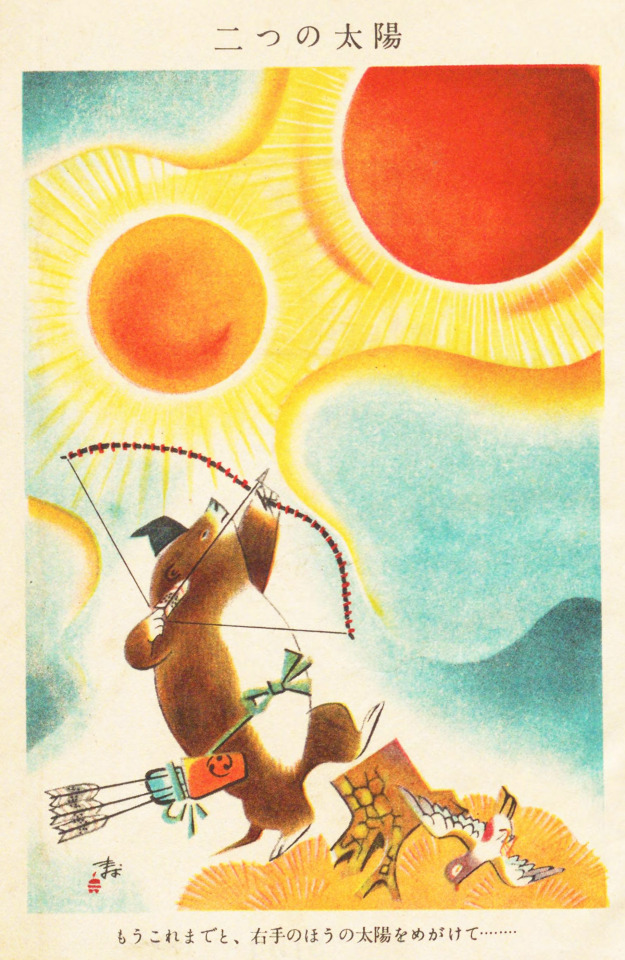#japanese children's book
Explore tagged Tumblr posts
Text
Tumblr community for langblrs that like to read in Japanese
✨My tumblr community for reading in Japanese got approved ✨
I would like to use this community for the following:
Sharing recommendations: When you finish an interesting article, manga, novel, children's book, or blog post in Japanese, share it with the community and tell us if there's furigana, complex grammar or keigo to watch out for!
Asking for recommendations: Would you like to read more in Japanese but don't know where to start or which genre to try next? Ask the community for their recommendations for your specific level of Japanese and reading experience!
I'm looking forward to more recommendations and discussions of Japanese books form the perspectives of other learners! If you have any input for this community please let me know.
Let's read some books together! 📚🇯🇵
#reading in japanese#日本語#study japanese#learning japanese#japanese books#manga in japanese#やさしい日本語#japanese children's book#free japanese reading resources#japanese reading comprehension#japanese book recommendation#japanese book club#japanese langblr
145 notes
·
View notes
Text

The Very Hungry Caterpillar, 82 yen stamps
#stamp#stamps#japanese stamps#the very hungry caterpillar#stamp collecting#cute#childrens books#sekaiichihappy scans#my scans
7K notes
·
View notes
Text

Mizuaki Imoto, ''Sword of Acrist'' trans. by Takamaro Ito, 1940, Source
#Mizuaki Imoto#japanese artists#fairy tales#vintage illustration#vintage art#children's books#fantasy art#fantasy illustration#my japanese translation is probably wrong
84 notes
·
View notes
Text


#asako eguchi#artist#artists on tumblr#artwork#illustration art#illustration#art#stars#fairy#moon#lune#étoiles#celestial#fantasy#fantasy art#japan#japanese#illustrator#childrens books#child#flowers#fairy aesthetic
11 notes
·
View notes
Text
This really is an impressive collection! 👀
I love that you have a full set of the 日本語多読ライブラリー graded readers (third picture). Do their simple stories work well for you?

The amount of study materials that I have physically (a.k.a. Books) is insane. I am just now realizing it.
















Yes I know it's stupid of me to have this much, but i like a variety of materials (even if they might be the same or not) ((the stuff in the last pic: One has just notebooks, the middle has various things, and the last set there are more elementary type learning?)) (( pic before that is word searches or crosswords))((with the magazines, the last plus a little of the middle are Junon magazines from years ago))
I also have a few learning varieties such as documents, photos and audio clips on my pc.
#reading in japanese#日本語#study japanese#learning japanese#japanese books#manga in japanese#japanese children's book#japanese textbooks#japanese graded reader#日本語多読ライブラリー#NPO多言語多読
32 notes
·
View notes
Text
The Phantom of the Opera by Kate McMullan, Japanese edition

Here's a little treasure. This is a Japanese translation of Kate McMullen's English language children's adaptation of Phantom of the Opera, illustrated by Marie Kitayama.



The book told the events of the book from Erik's eyes, starting with his childhood. The original is in English and is really great for young readers, and I think adult fans will like it too.




I love the shoujo art style.



You can see more images at better quality at Opera Ghost's website.
#phantom of the opera#poto#phantom shelf#children's adaptations#kate mcmullen#books and reading#marie kitayama#shoujo#japanese
9 notes
·
View notes
Text
Currently reading: それでも人のつもりかな

I'm currently reading the Japanese children's book それでも人のつもりかな by 有島希音(ありしま きおん)about an isolated middle schooler named Hoshi Arisa. The target audience are children in the upper years of elementary school and first year of middle school, so 11-13 year-olds.
This book has been on my shelf for a while. What got me interested was that the main character is multiethnic Japanese and I was interested how this would be depicted for that age group. I've read the first two chapters now and so far the book talks mostly about the severe bullying and Arisa's estranged relationship to her mother. Her homeroom teacher is trying to reach out to her, though, and I'm curious to see how this unfolds.
The titel is based on an haiku, btw:
ハンノキの それでも花の つもりかな
(by Kobayashi Issa)
10 notes
·
View notes
Text
When looking for material to improve Japanese reading skills, I would lean towards graded readers rather than children's books.That being said, exploring all the beautiful picture books and well thought out children's literature in Japanese has been a delight! Here are some of my favorite free resources for Japanese picture books:
Ehon Hiroba – free picture books created by users
e-Dōwa – collection of free fairy tale picture books
I particularly enjoyed the beautifully illustrated 親指姫(おやゆびひめ), a picture book based on the fairy tale Thumbelina by Hans Christian Andersen. It can be read for free here.

My favourite Japanese book series written for elementary school children is without a doubt the ふしぎ駄菓子屋(だがしや)銭天堂(ぜに��んどう)series about a magical candy shop that seems to pop up whenever a little magic is needed in the lives of its future customers.

I've written more about my thoughts on the first book of the series here.
Just keep in mind when reading children's books in Japanese that there will be many challenges for learners: E.g. even young children usually have a much broader vocabulary than beginners and particulary onomatope which features prominently in children's literature is usually introduced only much later to learners of Japanese. If you haven't read much in Japanese, yet, outside of textbooks, I would recommend graded readers (e.g. these here) instead of picture books to start with!
best part about learning a language is when you reach the point where you're able to read children's books in said language
#reading in japanese#study japanese#learning japanese#japanese books#my book reviews#japanese children's book#japanese picture books#親指姫#ふしぎ駄菓子屋銭天堂#fairy tales in japanese
23 notes
·
View notes
Text
Picture books are harmful to children (Essay)

Lion waiting in Namibia
I hate children. Not only do males not take care of their children like tigers and lions, but I like the style of killing their children like lions. (This is called the Bruce phenomenon.) So even if I accidentally become a father, I won't be interested in children and won't be with them. Well, like the Japanese warlords, I'll leave the education of my children to the right person.
Now, let's talk about "picture books." Whenever a smart woman has a "moving experience," she usually says she wants to make it into a picture book. Children are childish and stupid, so they welcome picture books. It's the law of supply and acceptance.
However, the danger is that even if a picture book with few words and thin content does match a child's sensibilities, after the picture book experience, the child stops growing. Even if the sensibilities are satisfied, the picture book does not contain enough information to raise the child's intelligence. Both mother and child are satisfied with their child's childish existence. This is no good. Children should read books that will sharpen their intellect, even if it means stretching themselves a little. Meaningless picture books are harmful.
Rei Morishita
絵本は子どもに害がある(エッセイ)
ナミビアで待ち伏せするライオン
私は子どもが嫌いだ。虎やライオンのように、オスが子どもの面倒を見ないどころか、ライオンのように子殺しするスタイルが良い。(ブルース現象と言う。)だから私が間違って父親になることがあっても、子どもには興味ないし、付き合わない。まあ、日本の戦国武将のように子どもの教育を相応しい者に任せるだろう。
さて、ここで「絵本」の話になる。ちょっと気の利いた女性がなにかちょっとした「感動的な体験」をすると、だいたい絵本にすると言い出す。子どもは幼稚で馬鹿だから絵本を歓迎する。受容供給の法則だな。
だが、危険なことは、文字数が乏しく、内容が希薄な絵本が、確かに子どもの感性にマッチしたとして、絵本体験後、子どもは成長を止める。感性は満足しても、知性を底上げするほどの情報量が絵本にはないのだ。幼稚な存在のままこれで良いと母子ともに満足してしまう。これではだめだ。子どもには、すこし背伸びをさせても知性を磨く本を読ませる��きなのだ。無内容な書籍である絵本は有害だ。
森下礼
#picture books#harmful to children#essay#rei morishita#tiger#lion#Bruce phenomenon#law of supply and acceptance#sensibilities#intelligence#Japanese warlords#babylman
2 notes
·
View notes
Text
I admit, for media like movies and series, I was using subtitles for a very long time even after I should have been proficient enough to understand without. But this would have to do with the fact that I never really used movies or series exclusively for studying. I just happened to sometimes pick up on new words and phrases ^^;
Now for manga and books, this was a different journey for me because I had my goal set on being able to read them comfortably without relying on translations and therefore I really wanted to study them. I started out with looking up every single word in a children's book and trying to translate it (I believe ねむれる森のひめ was my very first try) (- don't do this btw!)
Reading at that time didn't just feel like studying, it was studying. And even though that did me good for a while, I had to unlearn that mindset to reach my goal of actually reading comfortably. For me that meant actively stopping myself from studying a text and learning how to start reading for pleasure. I reached that stage during my exchange year and got the hang out of it by the end, so I can quite confidently say it took about 8 months for me personally.
Question for my fellow language-learners. When did consuming media in your target language stop feeling like "studying"?
#reading in japanese#日本語#study japanese#learning japanese#japanese langblr#japanese books#manga in japanese#japanese children's book
52 notes
·
View notes
Text
The Little Merman

🇯🇵The Little Merman🇯🇵 ~CLICK HERE~
An enchanting re-working of this Eureka Seven classic tale by Yuko Shimizu, which tells the story of the handsome merman who sacrifices his life at sea and his beautiful voice so that he can be with the beautiful princess he loves.
@eurekaseven389-blog
@planetaryoratorio
@ne0ryuu7
@dominituos-blog
@rentonthurston530-blog
@sleepy-edits
@mschapstick
@rell-the-chaotic
@bonath
@trapar12006
@thekidandthelion
@fyeaheureka7
@eureka7universe
@teabree-shark
@like-fairy-tales
@laurenillustrated
@earlgreybocchan
@thelilmerman
@bloadssom
@wonderkat11
@ask-merman-oliver-closed
@mermaid-mummy
@little-di-angelo
@thelittlemermanfanfic-blog
@a-little-merman
@little-merman
@dvdriot
@bettaquarius-blog
@shavrin
#The Little Merman#renton thurston#eureka 7#eureka seven#care characters#funimation#anime#fairy tales#mythology#folklore#japanese folktale#folk tales#children illustration#children's art#children's books#children's book#books#the little mermaid#children's book illustration#picture books#lilo and goku's fairy tales#grumpy renton#japan#tokyo
5 notes
·
View notes
Text

Toshio Suzuki (1904-1975), ''The Two Suns'' by Kusuro Makimoto, 1948 Source
#Toshio Suzuki#japanese artists#fairy tales#frontispiece#children's illustration#children's books#Kusuro Makimoto
72 notes
·
View notes
Text
I think this struggle could be a simple misunderstanding:
Learning a language through immersion requires comprehensible input.
What this means is that ideally you should understand more than 85-90% of the words in your text without looking anything up. If you can't recognize 80% of the kanji, the text you're reading simply is not fit for an immersion approach.
I see a lot of emphasis on native material in learning communities, but for beginners the only truly comprehensible input suitable for immersion (or extensive reading) are graded readers, which are specifically written to match their abilities. (I personally also enjoy children's books but they come with their own challenges and I haven't come across any that I can recommend to beginners without reservations.)
Even if your text is not comprehensible enough for the immersion approach, you can still read through it looking up words and grammar as you go. Just keep at it :)
I am a supporter of learning a language through immersion, but I have to question how helpful reading manga in japanese and using japanese subtitles only is when you're a beginner who can't recognize 80% of the kanji, and you can't exactly look up the meaning unless there's furigana, which there almost never is. I really want to start reading in japanese as soon as possible, I'm using Anki to increase my vocabulary AND my basic knowledge of kanji, but it is a fucking uphill climb. At this point, I have more comprehension of spoken dialogue than the written language, and I don't know if that's normal because it was certainly the other way around when I was learning english.
#let me know if you want any recommendations#reading in japanese#study japanese#learning japanese#japanese books#manga in japanese#japanese children's book#immersion learning#extensive reading approach#intensive reading approach
38 notes
·
View notes
Text
Welcome to Dead House - Japan

Amanda and Josh think the old house they have just moved into is weird. Spooky. Possibly haunted. And the town of Dark Falls is pretty strange, too. — But their parents don't believe them. You'll get used to it, they say. Go out and make some new friends. — So Amanda and Josh do. But these creepy new friends are not exactly what their parents had in mind.
Because they want to be friends...
...Forever.
#japan#japanese covers#japanese cover#book covers#book cover#children's books#children's literature#children's fiction#horror books#goosebumps#horror stories#horror series#book series#children's horror#rl stine#r.l. stine#welcome to dead house
2 notes
·
View notes
Text

also one last Gegege no Kitarou thing because I'm kind of diving into the Kitarou rabbithole to avoid work and I have to stop procrastinating but was using this literal book for babies to practice reading a while back and I just fucking loved the juxtaposition between something like "Kitarou's house is in the woods :) They have fun and relax there!!!!" "If you put a letter in his mailbox he'll show up (?) :D "
and then just (and I mean this literally)

KITAROU CAN ALSO GO TO HELL
#i read 'jigoku' and was like. what is that why does that sound familiar. OH . oh right its HELL#my childrens books growing up did not have children going to hell LMAo#i mean im sure some american kids did if their family was into Chick tracts#also my japanese is really fucking awful im sorry if i mistranslated any of this#thats why i said 'something like' emphasis on the something#baby books are fucking hard without the kanji to space shit out
4 notes
·
View notes
